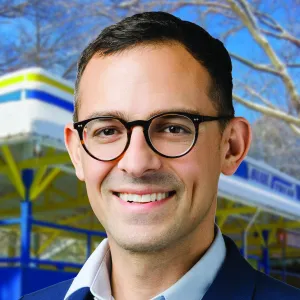Tour button
EDUSession Learnings: Engaging Gen Z Talent From the Front Lines
How human resources professionals can best recruit Gen Z for a dynamic workforce.

In an EDUSession on the future of workforce engagement at IAAPA Expo Asia 2025, two industry leaders—Nancy Fu from Universal Beijing Resort and Belinda Falzon of The Entertainment and Education Group / Timezone Group International—offered dynamic insights into attracting and retaining Gen Z talent, drawing from their extensive experience in global theme parks and family entertainment centers.
Both leaders unpacked generational practical insights and trends in tech-forward recruitment tactics for attractions professionals. They shared insight on retaining young workers and ways to empower Gen Z talent in tandem with cultural shifts shaping modern workplaces. Both emphasized that Gen Z is no longer a future consideration—they are a dominant presence in today’s labor force and redefining how organizations operate.
Gen Z's Workforce Impact
Fu highlights that Gen Z (born 1995–2010) will represent 25% of the global workforce by 2025. In China, they already make up 27% of the labor force, and at Universal Beijing Resort (UBR), 40% of full-time and 90% of flexible labor positions are filled by Gen Z. Falzon echoes similar trends, sharing that 67% of her team is Gen Z. This shift means employers must do more than adjust; they must transform.
Understanding Gen Z: What They Want
From insight gleaned from surveys and first-hand experience, both presenters outline Gen Z’s top priorities:
- Tech integration: As digital natives, they expect fast, mobile-first, tech-enabled processes.
- Values-driven culture: Gen Z seeks authenticity, transparency, and inclusion.
- Belonging and recognition: They want to feel heard, supported, and appreciated.
The pair believe attractions that respond with clarity, community-building, and real-time feedback can see stronger engagement and retention. “Gen Z is often seen as tech savvy, socially conscious, individualistic, practical and valid purpose over paycheck,” says Fu.
Strategic Frameworks in Action
Fu detailed UBR’s “Attract, Retain, Develop” approach:
- Attract: UBR partners with universities to hire students into two-year, growth-oriented roles. Scenario-based interviews are used to simulate real-world experiences.
- Retain: Surveys foster communication and connection with leadership to understand Gen Z behaviors.
- Develop: Continuous training and opportunities for young talent to voice ideas keep the workforce agile and inclusive, while internal programs outline clear career paths from entry-level to leadership.
Falzon’s strategy complements this with a strong focus on branding and recruitment innovation:
- Social-first recruiting: Her team uses all social media platforms to launch campaigns and visual storytelling that connects with Gen Z in their native spaces.
- AI-enabled processes: Automating early recruitment steps (like screening and scheduling) has reduced admin work and improved interview attendance.
- Group interviews: Especially useful in assessing and evaluate personality, collaboration, and cultural fit.
Rethinking Training and Development
Both leaders underscored the importance of fast, interactive training:
- Microlearning via video and QR codes: Short, mobile-friendly content boosts engagement and retention.
- Real-time feedback loops: Continuous check-ins and peer support makes staff growth feel dynamic.
- Mentoring across generations: Pairing Gen Z with experienced employees builds mutual understanding and accelerates learning.
Culture Perks That Resonate
Work perks are not fluff—they’re strategic. Ideas like monthly recharge days and hobby-related activities speak to Gen Z’s lifestyle and personal values. Digital recognition programs, like instant shout-outs or gamified rewards, help Gen Z feel seen and motivated.
The Generational Horizon
While engaging Gen Z means creating workplaces that are fast, flexible, digital-first, and deeply human, organizations that embrace this challenge aren’t just attracting top young talent—they’re building stronger, future-ready cultures.
Falzon emphasized the importance of constantly looking ahead. “If you're not on the Gen Z train yet, guess what? Next year in Australia, because we hire 14-year-olds, we now get [Gen] Alphas,” says Falzon while outlining that while Gen Z is the most important generation to understand now, the industry needs to look to the next generation sooner than most might imagine. Attractions that adapt now will be better positioned for future success.
Follow IAAPA for news and event announcements in your favorite social media apps
Connect with the Real Stories Behind the Fun
Follow our social media for authentic stories, special moments, and behind-the-scenes looks from the attractions world.

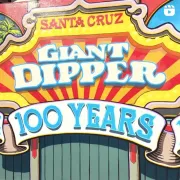


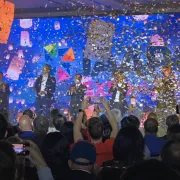
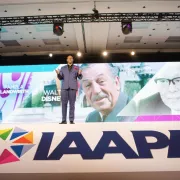





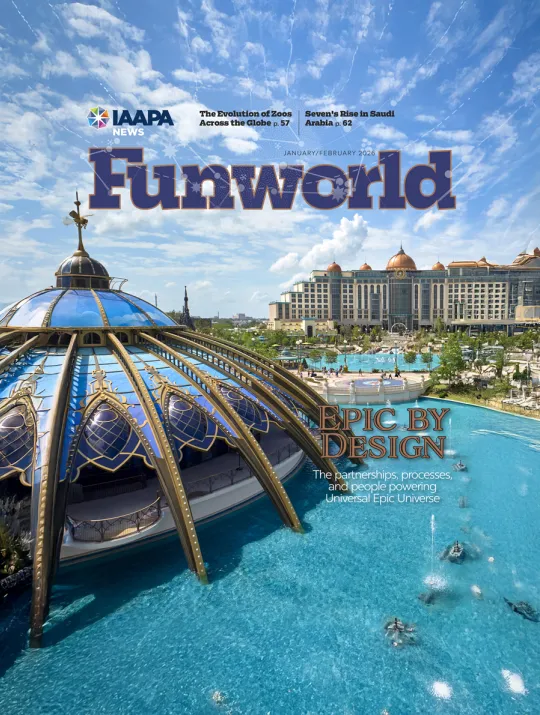
 The Official Magazine of IAAPA
The Official Magazine of IAAPA